Search
Remove Ads
Advertisement
Summary 
Loading AI-generated summary based on World History Encyclopedia articles ...
Search Results
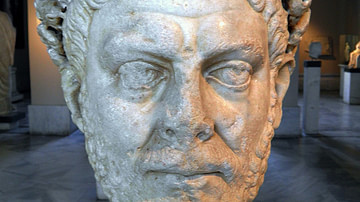
Definition
Diocletian
Diocletian was Roman emperor from 284 to 305 CE. After the defeat and death of the Roman emperor Philip the Arab in 249 CE, the empire endured over three decades of ineffective rulers. The glory days of Augustus, Vespasian, and Trajan were...
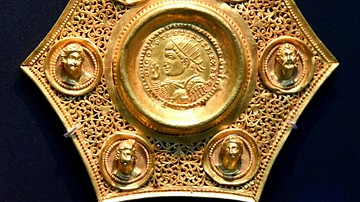
Article
Government and Taxes under Diocletian and Constantine
The state created by Diocletian and Constantine used to be described as despotic and oppressive, extracting higher taxes and threatening its subjects with punishments for non-compliance. Recent research, however, paints a different picture...
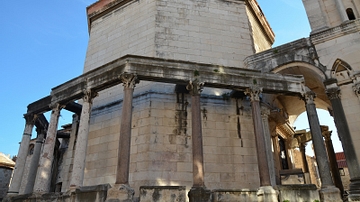
Image
Diocletian's Mausoleum
The octagonal mausoleum of Diocletian (now Cathedral of St. Domnius) inside Diocletian's Palace, Split (Croatia). Diocletian's Palace was built between 293-303 CE in preparation for his retirement on 1 May 305 CE.
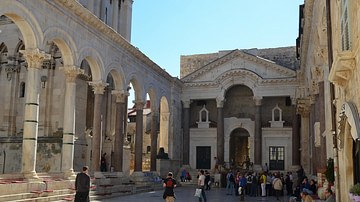
Image
Diocletian's Palace, Split
The peristyle is the heart of Roman emperor Diocletian's Palace (Split, Croatia) built at the turn of the fourth century CE.

Image
Basement halls of Diocletian's Palace
The basement halls of Diocletian's Palace were originally the supporting structures of the Roman emperor's residential quarters. They reflect the layout of the upper floor halls. Diocletian's Palace (Split, Croatia) was built at the turn...

Image
Egyptian sphinx from Diocletian's Palace
Diocletian's Palace was decorated with numerous granite sphinxes originating from the site of Egyptian Pharaoh Thutmose III. Only three have survived the centuries. This one is still located on the Peristyle of Diocletian's Palace.

Image
Roman Emperor Diocletian
Head of the Roman emperor Diocletian, 284 - 305 CE (Istanbul Archaeology Museum).
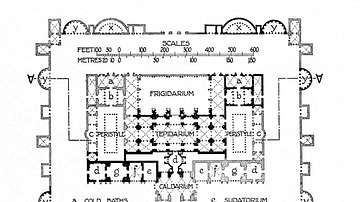
Image
Plan of the Baths of Diocletian
The floor plan of the Baths of Diocletian in Rome, completed in c. 305 CE.
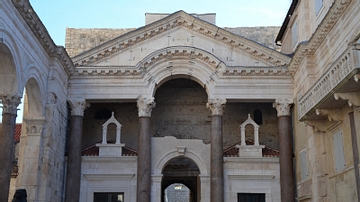
Image
Peristyle of Diocletian's Palace
The peristyle is the heart of Roman emperor Diocletian's Palace (Split, Croatia) built at the turn of the fourth century CE.
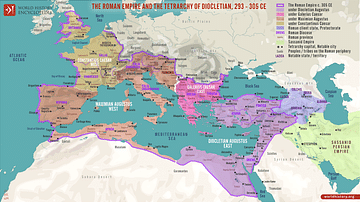
Image
The Roman Empire and the Tetrarchy of Diocletian, 293 - 305 CE
A map illustrating the Tetrarchy (from the Greek tetrarchia, "leadership of four"), established by the Roman Emperor Diocletian in 293 CE. It was a radical restructuring of the Roman Empire's governance system aimed at addressing its political...